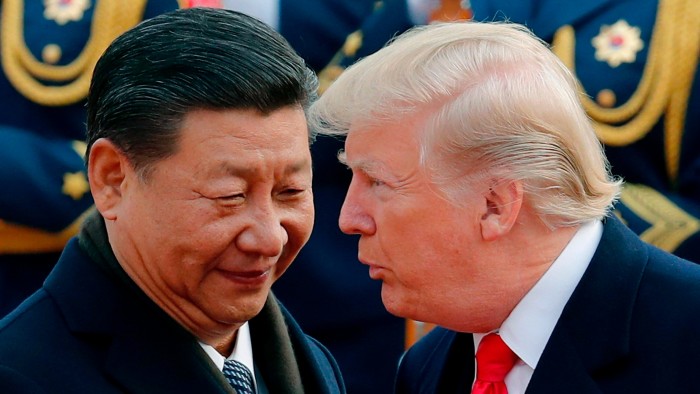Unlock the White House Watch newsletter for free
Your guide to what the 2024 US election means for Washington and the world
US president-elect Donald Trump has invited President Xi Jinping to his inauguration in January, in an early sign that he intends to resume the high-level engagement with the Chinese leader that marked his first term.
Karoline Leavitt, the incoming White House press secretary, told Fox News on Thursday that Trump wanted to create an “open dialogue” with countries that were American adversaries, not just with allies and partners.
“We saw this in his first term. He got a lot of criticism for it, but it led to peace around this world. He is willing to talk to anyone, and he will always put America’s interests first,” said Leavitt.
Leavitt said it was “to be determined” if Xi would accept the invitation. The Chinese embassy did not immediately respond to a request for comment.
The invitation comes as Beijing is bracing for an escalation in the trade war that Trump launched against China in 2018. The US president-elect has already threatened to impose a 60 per cent tariff on imports from China, which would be a big increase from the levies he imposed on the country’s goods in his first term.
Trump will enter office as US-China relations remain close to their worst state since the countries established diplomatic relations in 1979.
The US is concerned about Chinese military activity around Taiwan and coercive activity towards countries such as the Philippines in the Indo-Pacific. China in turn accuses the US of meddling in its internal affairs over Taiwan and is angry at US export controls that are designed to make it harder for the Chinese military to use American technology to modernise.
Trump has also picked several extremely hawkish officials to serve in top national security roles. He has said he will nominate Senator Marco Rubio, one of the most vocal China hawks in Congress, to be secretary of state, and intends to appoint Mike Waltz, a Florida congressman and former Green Beret, as his White House national security adviser.
Trump had a complicated relationship with China during his first term. He courted Xi in 2017 before launching a trade war the following year. But he took a tough stance on economic and security issues in 2020 as he blamed Beijing for the Covid-19 pandemic, which emerged from Wuhan.
Chinese officials have in recent months been desperately trying to determine what Trump wants to achieve in his dealings with China, and whether he wants to push for some kind of a deal with Xi, including on trade. Several people close to the Trump team said they expected that the incoming president would take tough approach on trade early in his administration to force China to come to the negotiating table.
Read the full article here




